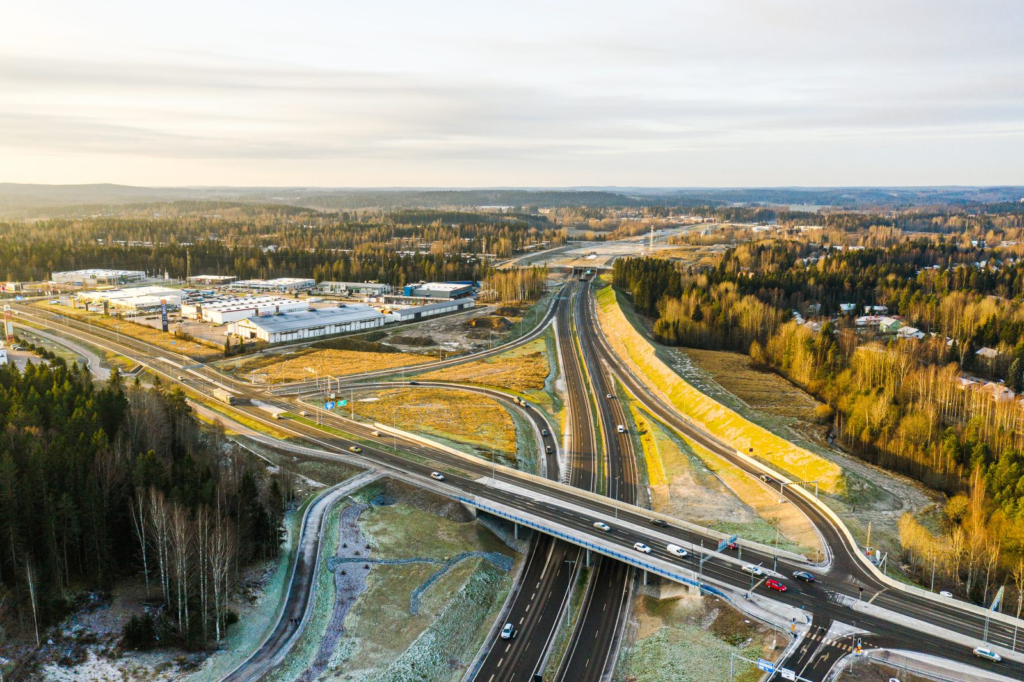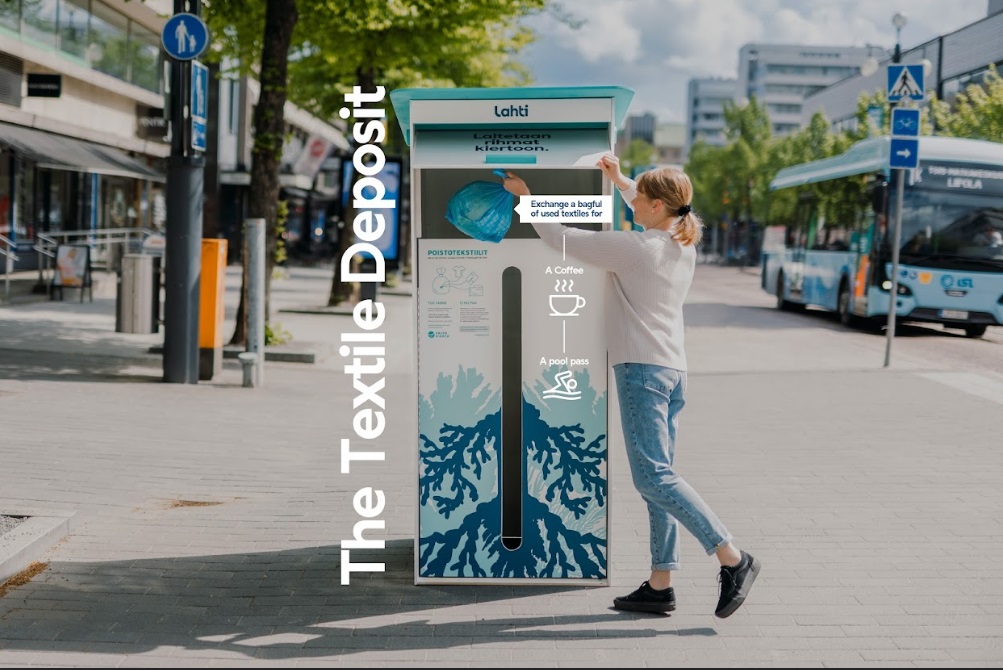
| Residents of the City of Lahti in Southern Finland live close to nature. More than one in two live less than 300 metres from a quiet area. In Lahti, an area is defined as quiet when there are mainly natural sounds and no traffic noise, for example. Quiet places in Lahti include the extensive outdoor areas of Salpausselkä ridge system, many parks, and protected natural areas. www.lahti.fi Inspired by the country’s highly effective deposit system for beverage containers, the Finnish city is piloting an incentive-based system for recycling textiles. Finns recycle up to 97% of aluminum cans, will a small reward inspire them to sort and recycle their old fabrics? The average European throws away 11kg of textiles every year*. Around the world, a truckload of textiles is landfilled or incinerated every single second. Separate collection of textile waste is set to be rolled out across the EU by 2025, but to change our bad textile habits, a lot of work is needed. Lahti’s textile deposit hopes to inspire a change in consumer behavior. “As a pioneer in urban environmentalism, Lahti has set a goal of being a waste free city by 2050. The textile deposit is a great example of an everyday innovation that directly aims to minimize the amount of waste and showcases the potential of discarded textiles as a raw material for industries and design,” says Communications Director Veera Hämäläinen from the City of Lahti. New Waste Act promotes circularity Finland took a step towards a circular economy for textiles at the beginning of the year, as a new law requiring cities and municipalities to make separate collection bins for textile waste available to all Finns came into effect. The separate collection of textile waste makes it possible for discarded clothes and household textiles to be reused as recycled fiber. “Our future depends on a circular economy, but it can’t just be the consumers’ responsibility to take care of recycling. With this pilot we want to ask what countries, cities and companies can do to help make recycling easier and more attractive to people. Deposits have worked well before, maybe there could be one for textiles in the future”, says Kimmo Rinne, Development Manager at Salpakierto, a municipal company that handles waste management in the Lahti Region. The textile Deposit asks if an incentive can inspire locals to recycle The pilot on a textile deposit aims to investigate if a citywide reward system can incentivise locals to recycle their textiles. At the pilot stage, Lahti residents can exchange a bagful of textiles for vouchers for local services, such as cafes or passes to a local pool. Initially, the pilot will run during the first weeks of June. Cities have a major role in making recycling easy for people. As a leading environmental city, Lahti wants to be in the forefront of leading the conversation on how cities can lead the change into a more sustainable lifestyle. The City of Lahti is also launching a national design competition that aims to find new and creative uses for discarded textiles. The competition runs from now to 13 August 2023. With the design competition Lahti wants to promote innovation and entrepreneurship in the field of circular economy. The competition is organized in collaboration with the Sustainable Lahti Foundation, LAB University of Applied Sciences and Salpakierto. The textiles collected in Lahti will be processed into recycled fiber at Finland’s largest textile processing facility in Paimio. In the spirit of circular economy, the recovered fiber can be used in the production of new products, such as thread, insulation materials and acoustic panels. For the Silo, Veera Hämäläinen. *EU Commission: https://ec.europa.eu/commission/presscorner/detail/en/QANDA_22_2015 Lahti Lahti tackles future challenges together with residents, companies and the educational sector. A sustainable future calls for action, which is why Lahti will achieve carbon neutrality by 2025. As the leading environmental city in Finland, we offer our citizens everyday life that is both smooth and sustainable. |

